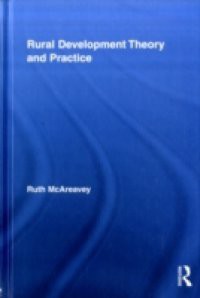Rural development is inherently viewed as a positive thing; it is seen as something that brings together groups of individuals with automatic positive implications and outcomes. Policy rhetoric frequently uses popular terms such as involvement, participation and power sharing to describe rural development activities. However, the reality of experience on the ground does not necessarily concur with these ideals. It is not always clear who ultimately benefits from rural development: the State, the community or rural development practitioners. This book critically analyses key concepts associated with rural development policy and practice, and using the concepts of power and micro-politics to analyze rhetoric and reality, reveals the intricacies of rural development. Challenging popular ideals associated with rural development, this book presents the notion of rural development less as a spontaneous, all-inclusive affair and more as a limited, controlled and exclusive process. Ultimately it contends that within structures of rural governance, a regeneration power elite predominates development and regeneration activities.

